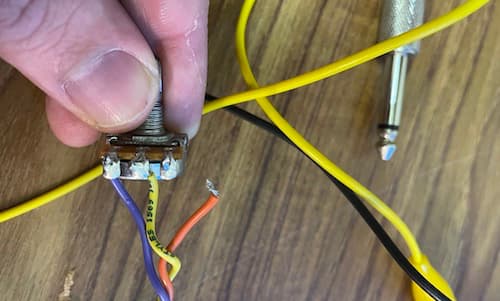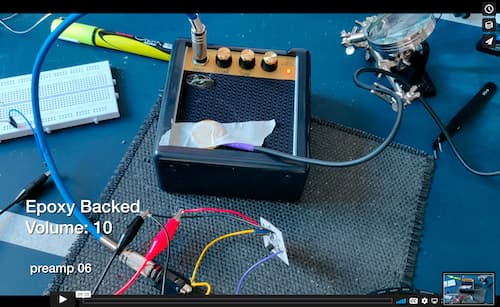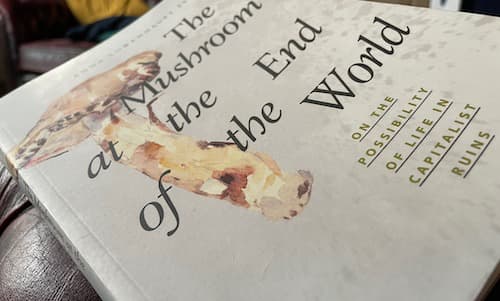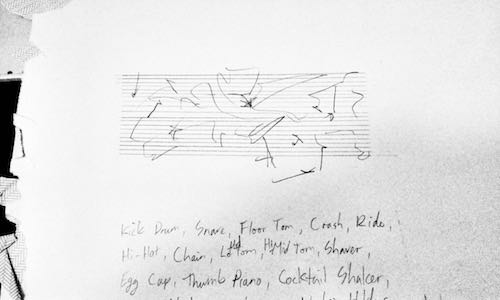DIY - Some Notes
A key term within my practice, and the broader music communities I identify with, is DIY. But what does this mean?
Firstly, this won’t be a history of DIY, or even a particularly in-depth consideration. Instead, a brief collection of thoughts, notes, and reflections. A starting point.
DIY in its simplest form stands for Do It Yourself. I’ve no idea of where this term emerged, or from what context. Some may only think of hardware stores and putting up shelves. It doesn’t feel productive at present to go into great depths. There are also competing/complementing terms such as Do It Together (DIT) which try to re-enforce collectivist principles where DIY has replicated, ignored, or been blind to various individualist politics, for better, or worse. There are many kinds of DIY, not all of which are political, radical, noncommercial, anti-capitalist, etc.
My entry to DIY, other than putting up shelving, is through music. My understandings would have been quite thin. Still, I had some awareness around independent music release/production that surrounded the more experimental and less commercial music I started to consume as a teenager. Later, there would be a mental ‘click’ around the American DIY punk scene I mostly knew through labels like Sub Pop and bands like Fugazi. I wasn’t deeply into this scene or very well informed. Still, there was a particular understanding of the possibility to release and record music oneself, and this understanding stemmed somewhat from the borders of this scene.
Those borders seemed to flow into a range of formative musical experiences: making mixtapes; figuring out how to play bits of Sonic Youth with only my Mum’s acoustic guitar; an incredibly elaborate use of a VHS recorder and Hi-8 video camera to achieve multi-track recording (mono bounces between left and right channels using a SCART adaptor); accessing the experimental CDr scene around the turn of the millennium; and eventually putting on my own shows whilst running a tape label.
These activities were me (often with others), doing things, with little financial backing or resources, to participate in the kind of music scenes of which I wanted to be a part. Increasingly, the politics of this has played a more significant role in my thinking. Partly I think this is a good thing - a greater understanding of power, privilege, and the experiences of others. Partly I’m not so sure - social media is breeding increasing conflict and confusion, splintering alliances and solidarity.
I’m not sure what DIY means to me at present. It’s something I need to spend some time figuring out. As a starting point, I’ve kept an e-mail in my inbox for over a month (this is quite uncharacteristic of me). It’s a newsletter from Wharf Chambers, a DIY, co-operative members bar/venue in Leeds.
In this e-mail, they ask, and answer, two questions of relevance:
What is Wharf Chambers? Wharf Chambers is a non-for-profit venue, bar and community space in Leeds. We aim to provide an inclusive and affordable space for music, art, film, politics and discussion that brings together people from communities across Leeds. We are run by a workers co-op in partnership with a members’ club and club collective. You can find out more here.
and
We also pride ourselves on being a DIY venue. What does DIY mean? In the past, we have directed people to a definition written by Leeds collective Cops n Robbers. Yet in the seven years we have been open, we have gained many members from many different walks of life, meaning an update was needed. We brought this to a members meeting and came up with the following - a common set of aims and values reflecting the different experiences of people organising in a DIY nature. We grouped the responses into five headings. For our members, DIY means…
- Self-organisation
- Community focused/ by the people for the people/ accessible
- Not prioritising profit making
- Uniqueness: something that is outside of the mainstream
- A space for experimentation/ freedom to explore/ opportunity to develop
I also wish to refer to Cops and Robber’s definition (as mentioned above):
Cops and Robbers exists as a voluntary run and not-for-profit publication and website to help like-minded promoters and bands let people know about underground/DIY music events in the Leeds area. DIY is a much contested and fuzzy term but we use it to describe events that are: Not for profit This does not necessarily exclude gigs that might inadvertently bring in more cash than is required to break even. We believe profit-making shouldn’t be a motivating factor and we champion gigs that consciously exist outside of the professional sphere. Not for kudos or careerism Minor Threat (covering the Monkees!) once sang ‘I’m not your stepping stone’ and we think this phrase sums up the DIY approach well. We believe that doing music DIY is an attempt to create a genuine alternative to the commercial music industry and not simply a feeding pool, first stage or stepping-stone towards it. ‘Econo’ and efficient Another phrase borrowed from the US underground punk scene: this time from the Minutemen. The DIY approach in our eyes is about making best use of resources and not being wasteful so that gigs can be as inclusive (i.e inexpensive) as possible. For example, gigs with guestlists, costly flyers/posters, wristbands, advanced tickets (and their additional fees) tend to make door prices more expensive. Socially and/or politically aware It probably goes without saying that we will not list gigs that promote racist, sexist, or in any way discriminatory or deliberately offensive views. We do encourage and support benefit gigs that help counter or raise awareness of resistance to oppression and ignorance in its many forms. These definitions are not fixed and we welcome discussion around them. However, please do not be offended if we question or do not include submitted listings that appear to conflict with this definition. Things that might prompt rejection or questioning might include: High door prices Whilst we appreciate that some bands have increasing costs to cover and venue hire can be expensive we may question listings that appear overpriced: a gig with a door price above £5 for a gig with just three local bands, for example. Music press/industry language Listings that are submitted that imitate, or worse, copy and paste the hyperbolic language of the music press tend to raise suspicion. To us, promoters that write their own descriptions of the bands demonstrate that they know and care about the music they are promoting. Ethically questionable content If you send in a listing for a night of EDL-endorsed Black Metal bands or a Rockabilly night with a wet T-shirt competition in between bands please don’t be surprised if we ask for additional info about the event to justify its inclusion in C and R.
https://web.archive.org/web/20180527115008/http://www.copsandrobbers.net/about/
Firstly, we can see some direct links to that US DIY Punk culture I mentioned earlier. Secondly, it provides a bunch of headings to dissect at a later date and ones that come directly from a current, local context. For now, this is a brief mapping of some of our key points for further reflection.




